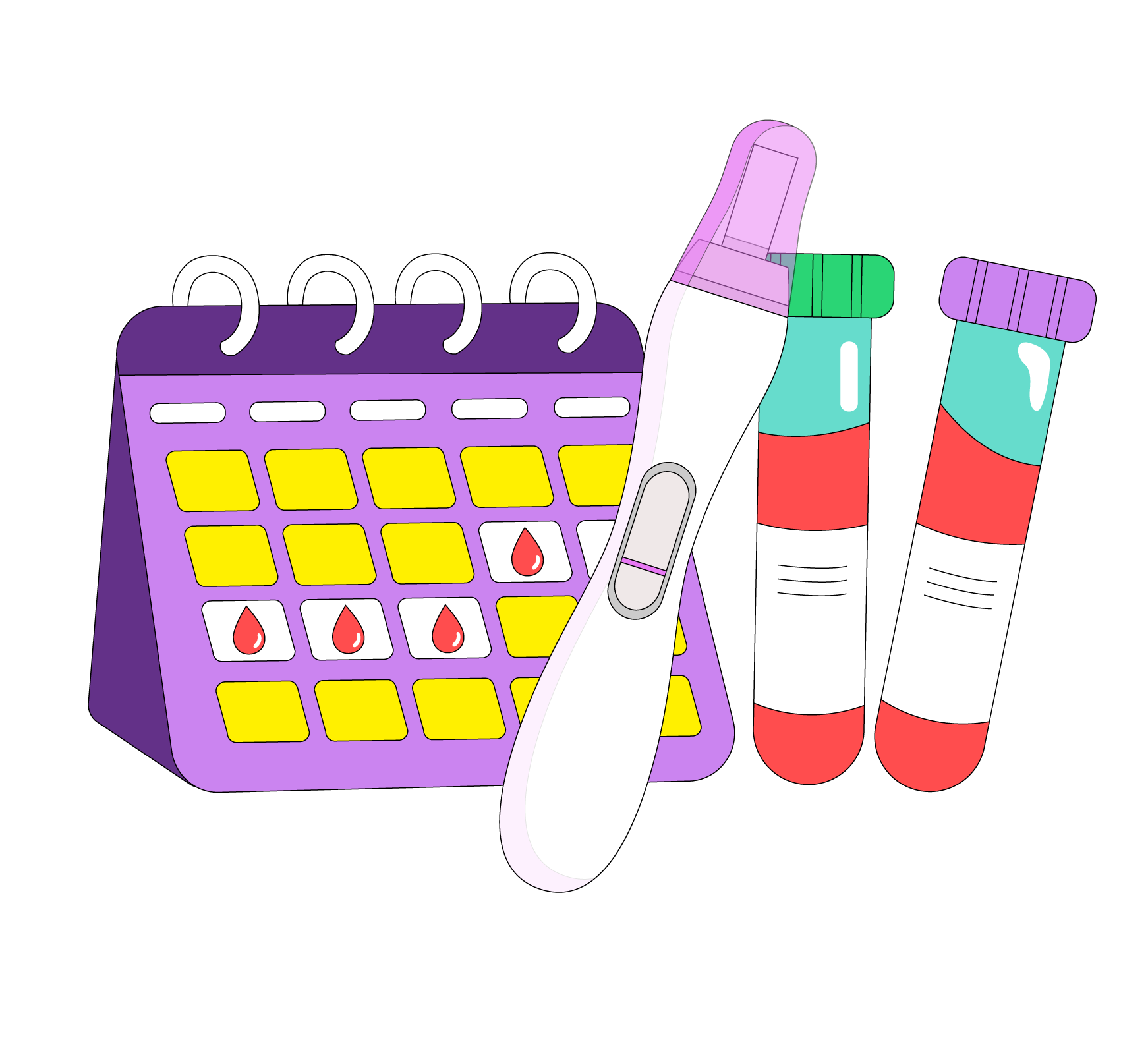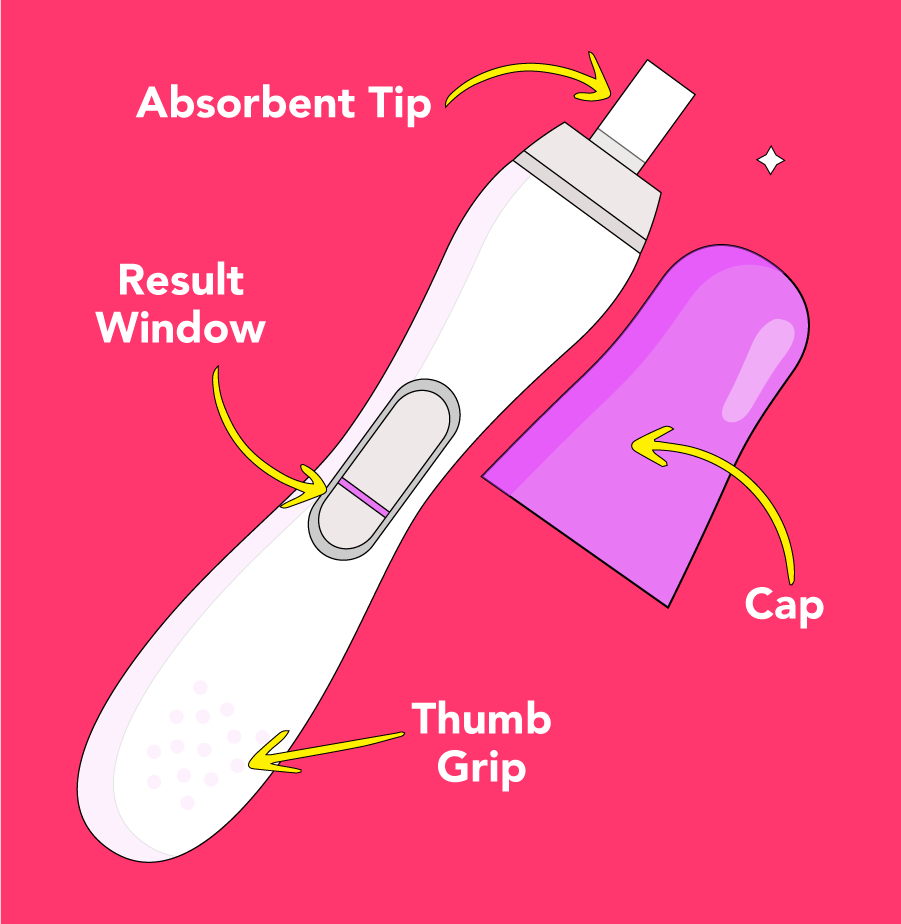Also known as “home pregnancy tests”, urine tests are quick, simple to use, and private. You put a specially treated test strip in contact with your urine to take the test. This can be done in multiple ways:


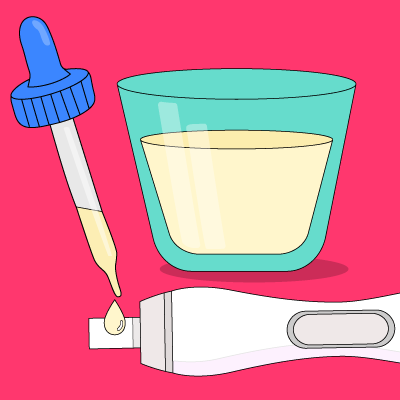
Urine tests can be as precise as blood tests, as they are 97-99% accurate. The accuracy is higher when your period is already delayed.
It is recommended to wait until the first day of your missed period before taking a urine pregnancy test. This is usually about two weeks after conception. However, some tests are more sensitive than others and can be taken earlier.
If you get a negative test result but still suspect you may be pregnant, try retesting after one week to double-check. Some home pregnancy tests suggest doing this no matter what your first results are.
You can buy a home pregnancy test in pharmacies or drug stores without a prescription. The price depends on the brand, but most tests aren’t expensive. Depending on your country of residence, you may be able to access pregnancy tests through public health institutions. When buying a urine pregnancy test, make sure it is not expired and read the instructions carefully so that you understand how it works.
Pregnancy Test Results
Each brand has its own way of showing results; it could be plus or minus signs, bars, or if it’s a digital test, it may show the words “pregnant” or “not pregnant”. It’s important to read the instructions carefully to know what the result will look like and avoid any confusion.
For the non-digital tests, you must remember this: It doesn’t matter how light or thin the results may look, if you see a weak “+” sign or one bar is bolder than the other, it’s still a positive result. You can only consider a result as negative when there’s no sign of another bar.
There are, of course, cases of false-positive results where the test says you are pregnant when you are not. This could happen if you have blood or protein in your pee. Some medications, such as tranquilizers, anticonvulsants, hypnotics, and fertility drugs, could also lead to this.
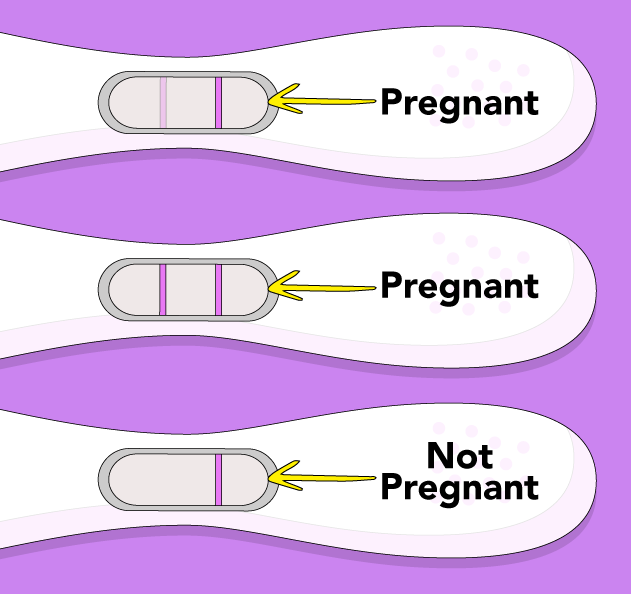
Blood tests can detect pregnancy earlier than a urine test – about six to eight days after ovulation, but it takes longer to get the results than with a home pregnancy test.
There are two types of blood tests:
This type of test simply checks if there is hCG in your blood or not, and it can confirm pregnancy around 10 days after conception.
This type of test measures the levels of hCG in the blood and can detect even very low levels. Doctors usually use this kind of test to track the changes in the level of hCG and detect an ectopic pregnancy.
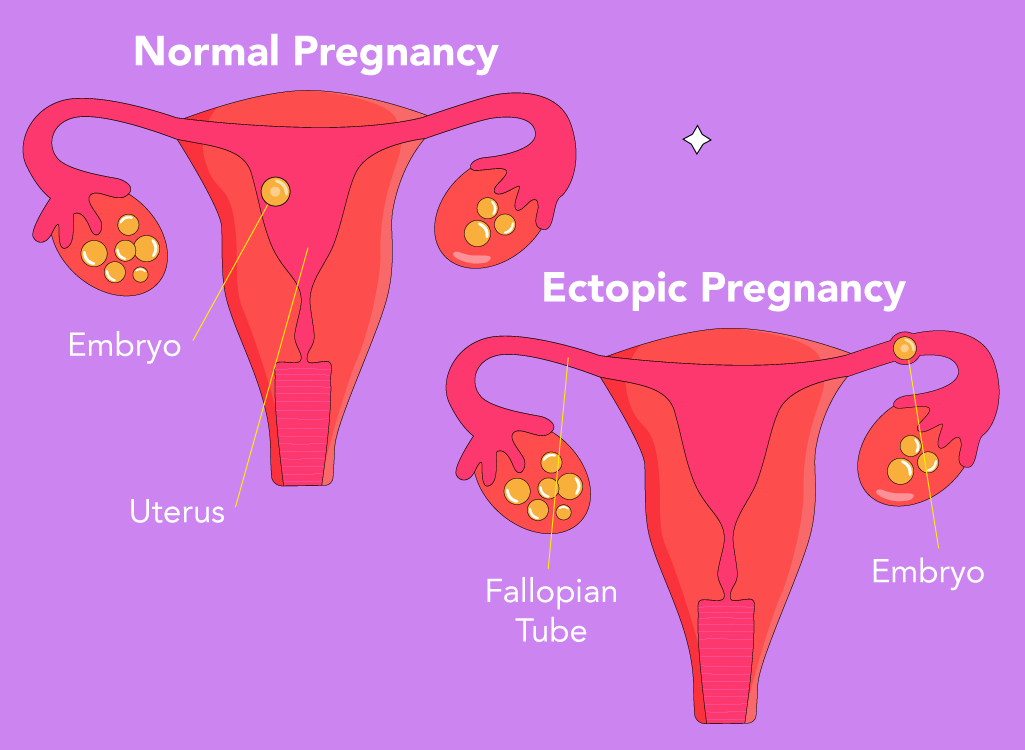
An ectopic pregnancy occurs when a fertilized egg implants and grows outside the main cavity of the uterus, usually in the fallopian tubes, which connect the ovaries to the uterus.
Pregnancy blood tests are about 99% accurate.
Blood tests can be taken around seven days after you ovulate (which is about a week before your period is due) and still provide accurate results.
For blood tests, you can visit a doctor or go directly to a laboratory; most of them offer this test. They cost more than a urine test.
Test results
A healthcare provider needs to read your results and tell you what your hCG levels are and what that means. These levels are measured in milli-international units of hCG hormone per milliliter of blood (mIU/mL).
Do you want to know how a pregnancy occurs? Visit How does a pregnancy happen? section to learn more about it.
In case you want to explore the options that one has when faced with an unplanned pregnancy, visit our Pregnancy options page.
In case your periods are irregular, or you don’t have them at all, we recommend that you take the pregnancy test three weeks after you’ve had unprotected sex.

